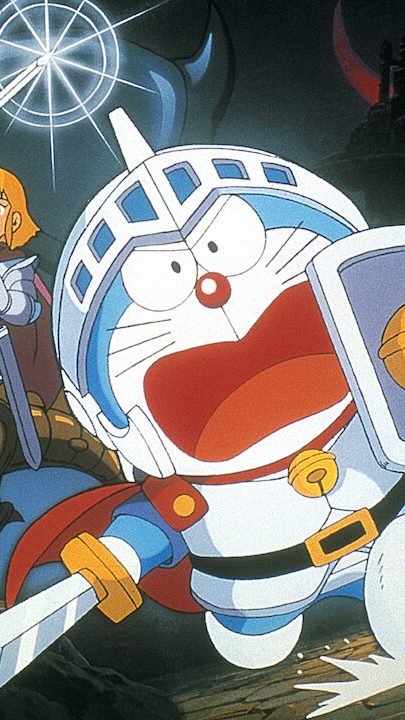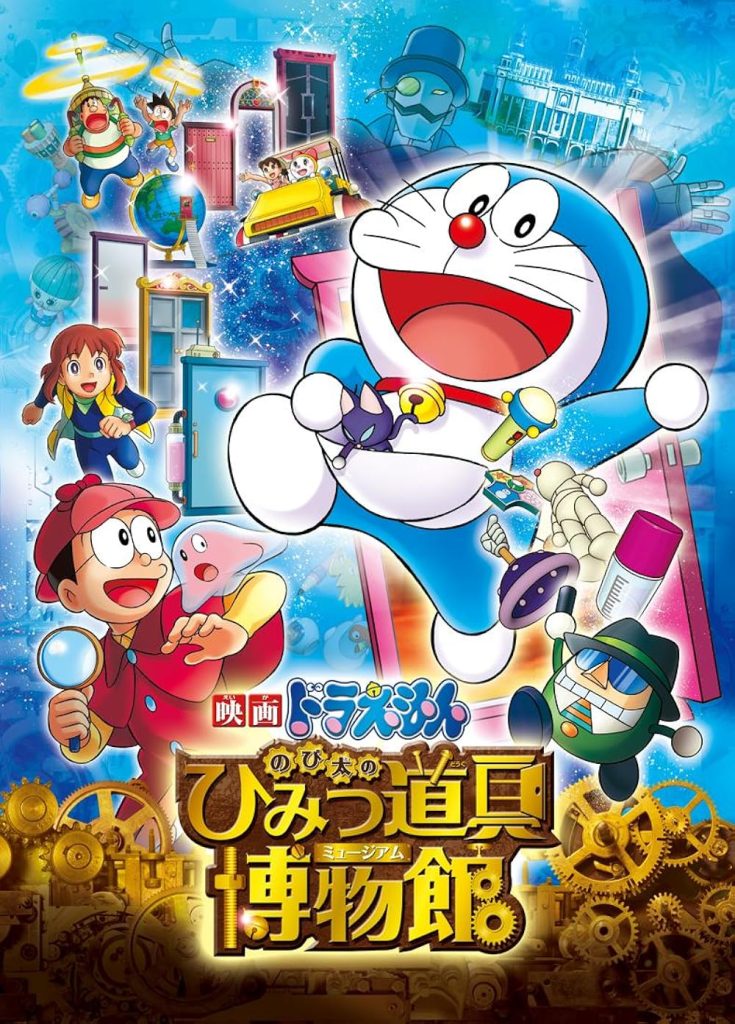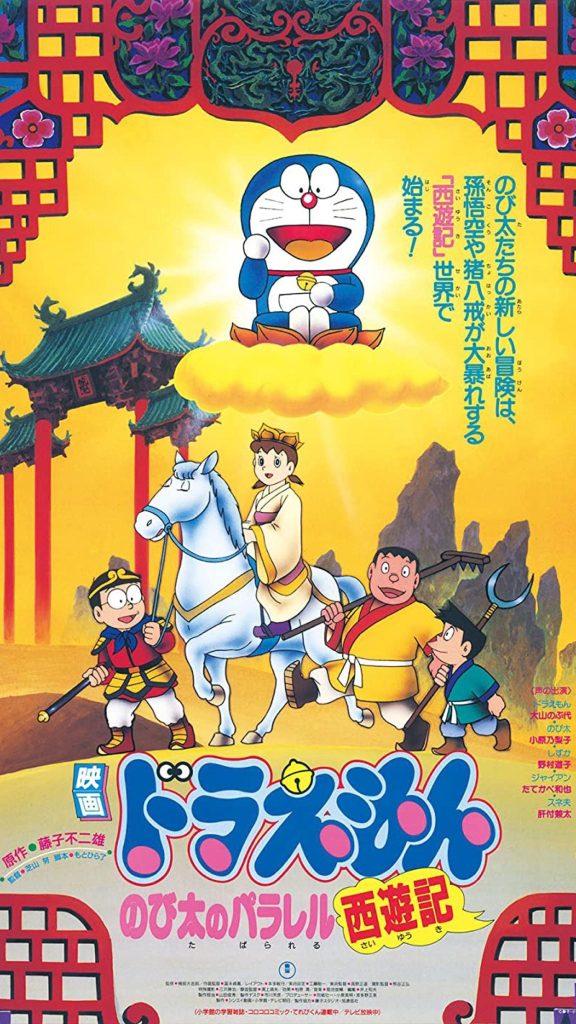
Key Details
- Title: Doraemon: Nobita in the Robot Kingdom
- Japanese Title: ドラえもん のび太とロボット王国 (Doraemon: Nobita to Robotto Ōkoku)
- Release Date: March 9, 2002 (Japan)
- Runtime: 81 minutes
- Country: Japan
- Language: Japanese
- Director: Tsutomu Shibayama
- Screenplay: Nobuaki Kishima
- Based on: Original story by Fujiko F. Fujio
- Music: Shunsuke Kikuchi
- Production Studio: Shin-Ei Animation
- Distributor: Toho
- Box Office Gross: ¥2.31 billion (approximately $16 million)
- Genres: Animation, Adventure, Comedy, Family, Fantasy, Sci-Fi
- International Titles:
- “Doraemon: Nobita and the Robot Kingdom”
- “Doraemon, el gladiador” (Spain)
🧵 Plot Summary
In this 23rd installment of the Doraemon film series, the story begins with Nobita feeling envious of Suneo’s new robotic dog. In an attempt to get his own robot, Nobita uses Doraemon’s “Shopping from the Future” gadget, inadvertently causing a flood of robots to appear in their neighborhood. Among them is Poco, an injured robot boy from another world.
To help Poco, Doraemon and his friends travel to the Robot Kingdom, a world where humans and robots once coexisted peacefully. However, the kingdom is now under the rule of Empress Janu, who, influenced by her advisor Dester, has initiated a plan to remove emotions from all robots, turning them into emotionless tools.
As the group endeavors to stop this plan, Doraemon is captured and forced to fight in a gladiator-style arena. Meanwhile, the others learn more about the kingdom’s past and the true nature of Dester’s intentions. The climax involves a confrontation that challenges the very foundation of the Robot Kingdom’s society. Wikipedia, la enciclopedia libre
🎭 Voice Cast
- Doraemon: Nobuyo Ōyama
- Nobita Nobi: Noriko Ohara
- Shizuka Minamoto: Michiko Nomura
- Takeshi “Gian” Gōda: Kazuya Tatekabe
- Suneo Honekawa: Kaneta Kimotsuki
- Poco: Houko Kuwashima
- Empress Janu: Chiharu Niiyama
- Dester: Shūichirō Moriyama
- Maria: Toshiko Fujita
- Dr. Chapek: Takanobu Hozumi Wikipedia, la enciclopedia libre
🌟 Themes and Cultural Significance
The film delves into themes of emotion, identity, and the ethical treatment of sentient beings. By portraying a society where emotions are stripped from robots, it raises questions about the essence of humanity and the importance of empathy. The narrative also touches on the dangers of authoritarian rule and the loss of individuality.
💰 Box Office Performance
Upon its release, “Doraemon: Nobita in the Robot Kingdom” achieved significant commercial success:
- Japan: ¥2.31 billion (approximately $16 million)
While it performed well, it was slightly less successful than some of its predecessors in the Doraemon film series.
🌍 International Reception
The film was released in various countries under different titles:
- Spain: “Doraemon, el gladiador” Wikipedia, la enciclopedia libre
Its universal themes and engaging storyline allowed it to resonate with audiences worldwide, further cementing Doraemon’s status as a beloved international character.
🧠 Educational Value
By introducing viewers to complex themes such as emotional intelligence, societal control, and ethical dilemmas, the film serves as an educational tool. It encourages discussions about the role of emotions in society and the importance of standing up against oppressive systems.
“Doraemon: Nobita in the Robot Kingdom” stands as a thought-provoking entry in the Doraemon filmography, combining adventure with deeper philosophical questions. Its exploration of emotion and identity offers both entertainment and educational value, making it a noteworthy installment in the series



